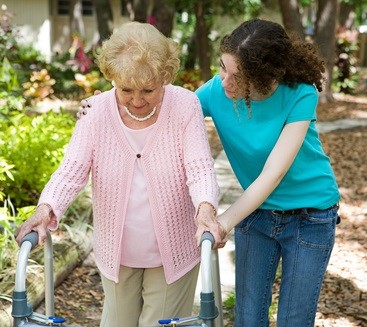
A report from AARP warns that Baby Boomers should expect a massive shortage in caregivers available to provide care as they age. The report, “The Aging of the Baby Boom and the Growing Care Gap”, projects that by 2030 there will be only four potential caregivers available for each person 80 or older, down from a high of more than seven in 2010. By 2050, when Boomers are between 86 and 104, the ratio will drop below 3 to 1.
This shortage, dubbed the “2030 problem” results from several factors, such as the large number of Baby Boomers, the tendency of this generation to have less children and increased longevity. This problem affects women to an even greater degree due to higher life expectancies. The divorce rate and overall percentage of unmarried Boomers (1 in 3) means that many will not be able to rely on help from a spouse. The 80+ population will swell between now and 2040 while the younger cohort does not. As a point of reference regarding care needs, in 2010: 70.5% of those age 80+ had some disability, 55.8% had a severe disability and 30.2% needed help with daily living tasks (bathing, dressing, toileting, preparing meals, using the telephone and paying bills).
Despite stereotypes to the contrary, American families do provide the great majority of care for elders, with 80% of care provided by families. This unpaid care has a value of $450 billion dollars (statistic for 2009). Clearly, our society relies on informal caregivers to a great degree and this shortage is a major eldercare issue for both the country and individuals.
As the AARP spokesperson commented, it is going to be unrealistic for Baby Boomers to rely solely on family and friends for eldercare. It is essential that Boomers start eldercare plannng now, rather than waiting until that time when they need care. While we know that most people state the desire to stay in their own homes as they age, we also know that informal supports are a big part of that reality. Will this caregiver shortage force more people in to instutional settings? What about the parallel shortage of professionl caregivers (eldercare workers, in all settings)?
Making this problem all the more challenging for families, many Boomers are currently caring for their aging loved ones. This might raise awareness of these issues and lead to better planning, or it might affect income and savings negatively and detract attention from one’s own planning.
A Washington Post article on this report pointed to other countries with similar proportions, but noted that many have done advance planning and modified policies accordingly. Focusing legislators’ attention to this issue may not be so easy when, as Robyn Stone from Leading Age states, “Our country is sort of a muddling-through country, and we tend to respond more to crisis situations than long-term planning.” This also tends to be true of individual planning, as people still generally deal with eldercare in crisis mode. Hopefully this study is another wake up call for more individuals and families to consider proactive eldercare planning.
So what can you do as a Baby Boomer who wants to have some control over your aging process and eldercare needs?
- Do some reading. Check out some of the quality websites and blogs on eldercare issues (you can check out our eldercare links page, subscribe to the Aging Wisely and EasyLiving blogs and we also highly recommend Sally Abrahms on AARP). Get an understanding of the key issues, follow policy changes and be aware of important factors such as what Medicare covers and does not.
- Engage help for legal and financial planning. Finances play a big role in your eldercare options. The more you can do to prepare (saving, investing, purchasing insurance, understanding gaps between your assets and potential needs), the better your options. Legal planning (estate planning and advance care planning) is not just important as you reach your latter years. It should be in place for all adults. The reality is that accidents, illness, and death don’t just affect the elderly.
- Consider a care consultation and bringing in a care manager to your planning team. As you do your financial planning and try to understand issues like Medicare/retirement health insurance and eldercare costs, the care manager can give you practical advice and answer questions so that you have a clear understanding behind the decisions you make.
- Talk to your family. Keep your family informed of what you are doing and don’t make assumptions about caregiving roles. If you have family riffs, it might be especially important to address these concerns now.
For care consultations, Medicare and health care advice and a wide array of eldercare assistance, give us a call at 727-447-5845. Our Senior Care Consultant, Sue Talbott, is standing by to help!
 Popular Downloads
Popular Downloads


 Get Our Newsletter!
Get Our Newsletter! Mission Statement
Mission Statement

